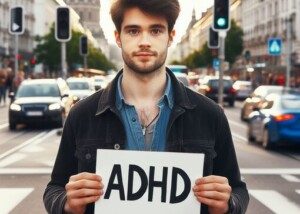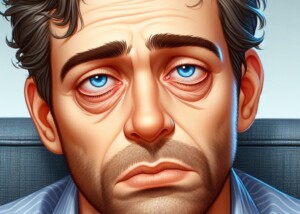If your child’s been diagnosed with ADHD, you should first have a sleep study done on them before you start doling out the ADHD drugs.
When adults don’t get enough sleep, the most obvious symptom is drowsiness.
Kids who do not get restorative sleep may seem to have energy during the day, but their symptoms of inadequate sleep can mimic those of ADHD.
It’s no secret among pediatricians that many of their young patients who’ve been diagnosed with ADHD experience behavior improvement once their sleep quality is improved.
If your son or daughter has been diagnosed with ADHD, or you’ve been told by a school counselor that “he probably has ADHD,” there is no rush to get a drug prescription.
Take some deep breaths and consider the possibility that sleep-disordered breathing is responsible for the hyperactivity, lack of focus, short attention span, etc.
“I agree that poor sleep quality can imitate ADHD symptoms,” says Dr. Lisa Lewis, MD, a board certified pediatrician in Fort Worth, Texas, and author of “Feed the Baby Hummus, Pediatrician-Backed Secrets from Cultures Around the World.”
“When screening a child for symptoms of ADHD, sleep quality is a top question that should be asked.
“It is important to know whether their child snores, sleeps fitfully, has insomnia or gets a good night’s sleep.
“If the parents are unsure, they should observe the child at night.
“Symptoms to observe for are significant snoring with restless sleep.
“It also helps to log how many hours’ sleep they get at night, daytime fatigue and whether they are difficult to awaken in the morning.
“If the tonsils are enlarged, it never hurts to get an opinion from an ENT (ear, nose and throat) doctor to ensure the enlarged tonsils are not obstructing the airway at night.
“Also, children with ADHD who have difficulties sleeping at night or insomnia tend to have heightened symptoms of ADHD during the day.”
Never assume that your child can’t have sleep-disordered breathing just because he or she is thin.
Other Things for Parents to Watch for While Their Child Is Sleeping
- What appears to be strained or forced inhalation or some other issue with breathing.
- Constant movement and adjustment of their body and arms; frequent fidgeting. The child never attains a prolonged phase of appearing peaceful and STILL.
- Pauses in their breathing. Watch the rising and falling of their stomach. Does it remain in the “fallen” position for too long?
- When breathing finally resumes, is it noisy? This is especially a red flag for a sleep disorder.
If anyone has told you that your child might have ADHD, or, if you yourself have come to this conclusion, the first doctor your child should see is a pediatrician who’s knowledgeable of obstructive sleep apnea.
This may be a general pediatrician or a pediatric otolaryngologist.
Ultimately, a full evaluation by an ear, nose and throat physician may be in order, along with a sleep study.
Having 25+ years’ experience, Dr. Lewis completed her pediatrics residency at Texas A&M University Health Science Center, Scott and White Memorial Hospital. For two years afterward she was assistant professor in the department of pediatrics at Texas A&M University Health Science Center.
 Lorra Garrick has been covering medical, fitness and cybersecurity topics for many years, having written thousands of articles for print magazines and websites, including as a ghostwriter. She’s also a former ACE-certified personal trainer.
Lorra Garrick has been covering medical, fitness and cybersecurity topics for many years, having written thousands of articles for print magazines and websites, including as a ghostwriter. She’s also a former ACE-certified personal trainer.
.




























